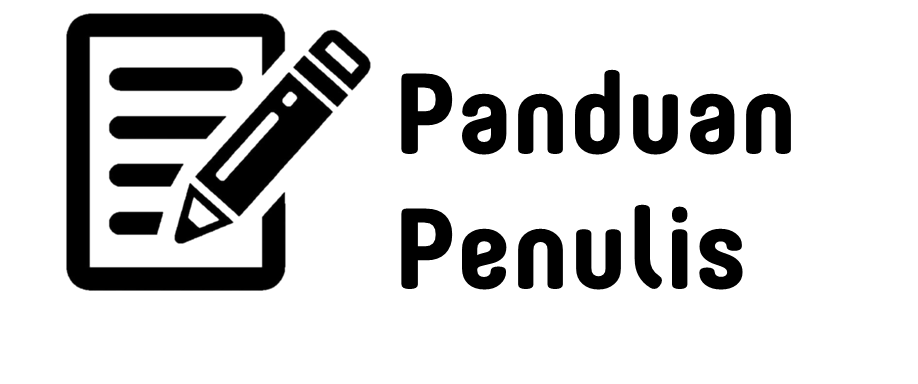PENERAPAN TATA KELOLA YANG BAIK DI NEGARA BERKEMBANG STUDI KASUS RWANDA, BRAZIL, DAN BOTSWANA
DOI:
https://doi.org/10.56655/jid.v3i2.297Keywords:
Good governance, developing countries, transparency, accountability, empirical case studiesAbstract
This study aims to evaluate the implementation of good governance in developing countries through the Systematic Literature Review (SLR) approach. Good governance, which includes transparency, accountability, community participation, and political stability, is a key element in creating effective and competitive governance. The results of the review show that the implementation of good governance in developing countries still faces various challenges, such as weak law enforcement, high levels of corruption, and lack of technological infrastructure and community participation. However, several countries, such as Rwanda, Brazil, and Botswana, have shown success in implementing innovative governance reforms through the use of digital technology and e-governance, fiscal decentralization, and the strengthening of anti-corruption institutions. This research also highlights the importance of political stability in supporting the implementation of effective governance. Countries with high political stability tend to be more successful in implementing governance reforms than countries with political instability. This study provides recommendations to strengthen governance in developing countries through increased transparency, accountability, and use of technology, as well as strengthening supervisory institutions and public participation. In addition, a strong political commitment is needed to ensure the sustainability of governance reforms in these countries.
References
Alatas, S. (2021). Bureaucracy, Politics, and Governance: Indonesian Experiences. Gramedia.
Andersson, S., & Heywood, P. M. (2021). Anti-Corruption as a Trust-Building Strategy: Political Efficacy, Governance, and Corruption. Governance, 34(4), 1237–1256.
Andrews, M. (2021). Building State Capability: Evidence, Analysis, Action. Oxford University Press.
Bank, W. (2021). World Development Report 2021: Data for Better Lives. World Bank.
Dwiyanto, A. (2011). Reformasi Birokrasi Publik di Indonesia. Gadjah Mada University Press.
Dwiyanto, A. (2015). Mewujudkan Good Governance Melalui Pelayanan Publik. Gadjah Mada University Press.
Faguet, J. P. (2020). Decentralization and Popular Democracy: Governance from Below in Bolivia. University of Michigan Press.
Fukuyama, F. (2015). Political Order and Political Decay: From the Industrial Revolution to the Globalization of Democracy. Farrar, Straus and Giroux.
Gisselquist, R. M. (2020). Good Governance as a Concept, and Why This Matters for Development Policy.
Grindle, M. S. (2017). Going Local: Decentralization, Democratization, and the Promise of Good Governance. Princeton University Press.
Habibi, M. (2021). Public Participation in Local Planning: Challenges and Opportunities in Indonesia. Journal of Public Administration Studies, 8(1), 23–35.
International, T. (2022). Corruption Perceptions Index 2022. Transparency International.
Iskandar, A., & Wahyudi, S. (2019). The Influence of Public Participation on the Effectiveness of Local Government Administration in Indonesia. Journal of Indonesian Governance Studies, 5(2), 101–110.
Kaufmann, D., & Kraay, A. (2019). The Worldwide Governance Indicators: Methodology and Analytical Issues.
Kitchenham, B., & Charters, S. (2007). Guidelines for performing Systematic Literature Reviews in Software Engineering (Nomor EBSE-2007-01).
Krippendorff, K. (2018). Content Analysis: An Introduction to Its Methodology (4th ed.). SAGE Publications.
Manoharan, A., & Ingrams, A. (2021). Conceptualizing Digital Government Frameworks: State of the Art and Research Issues. Government Information Quarterly, 38(3), 101–110.
Mungiu-Pippidi, A., & Johnston, M. (2017). Transitions to Good Governance: Creating Virtuous Circles of Anti-Corruption. Edward Elgar Publishing.
Nations, U. (2020). Sustainable Development Goals: Goal 16: Peace, Justice, and Strong Institutions. United Nations.
Nugroho, R., & Pratikno. (2020). Reformasi Administrasi Publik di Indonesia: Evaluasi dan Tantangan. Jurnal Kebijakan Publik, 11(1), 15–30.
Nwankwo, O. (2021). Transparency and Accountability in African Governance: A Review of Best Practices. African Governance Review, 12(3), 45–62.
Rahman, M. (2022). Barriers to Transparency in Developing Countries: A Comparative Study. Journal of Development Policy, 9(4), 213–229.
Santoso, R.R. (2020). Pengaruh E-Government Terhadap Kinerja Aparatur Pemerintah Dengan Keadilan Prosedural Sebagai Variabel Mediasi. Skripsi. https://repository.unair.ac.id/95840/2/2.%20ABSTRAK%20.pdf
Schmidthuber L., I. A., & Hilgers, D. (2020). Government Openness and Public Trust: The Mediating Role of Democratic Capacity. Public Administration Review, 80(4), 649–659.
Schmidthuber, L., Ingrams, A., & Hilgers, D. (2021). Government Openness and Public Trust: The Mediating Role of Democratic Capacity. Public Administration Review, 81(1),91-109
Setyowati, D. (2021). E-Government and Transparency in Local Government: A Case Study from Indonesia. Journal of Public Administration Studies, 5(2), 110–123.
Simarmata, R. (2020). Decentralization and Local Governance in Southeast Asia: Lessons from Indonesia and the Philippines. Southeast Asian Journal of Governance, 8(1), 12–30.
Snyder, H. (2019). Literature Review as a Research Methodology: An Overview and Guidelines. Journal of Business Research, 104(4), 333–339.
Widianingsih, I., & Morrell, E. (2020). Participation in Local Governance: The Indonesian Experience. International Journal of Public Administration, 43(10), 905–917.
Downloads
Published
How to Cite
Issue
Section
License
Copyright (c) 2024 Mahdi Hidayatullah

This work is licensed under a Creative Commons Attribution 4.0 International License.







